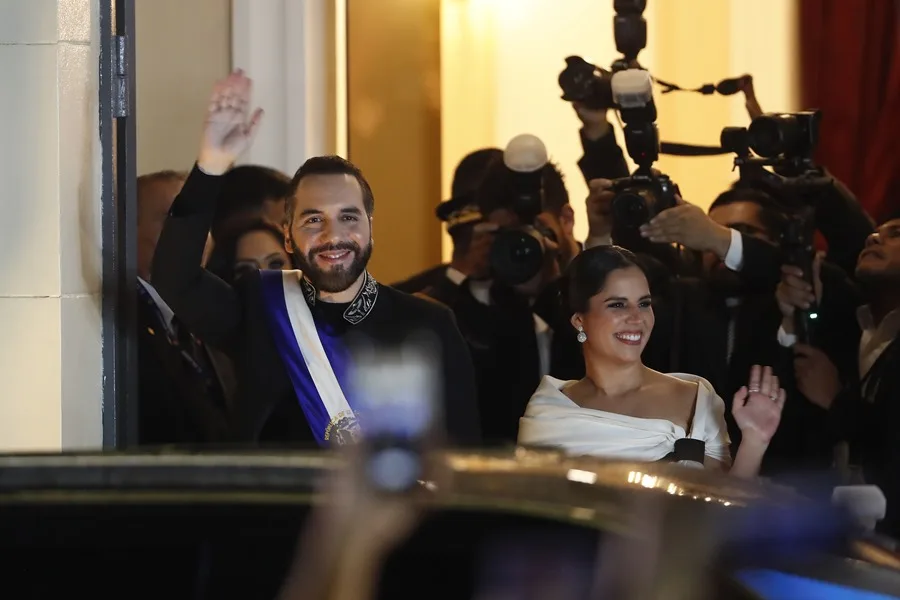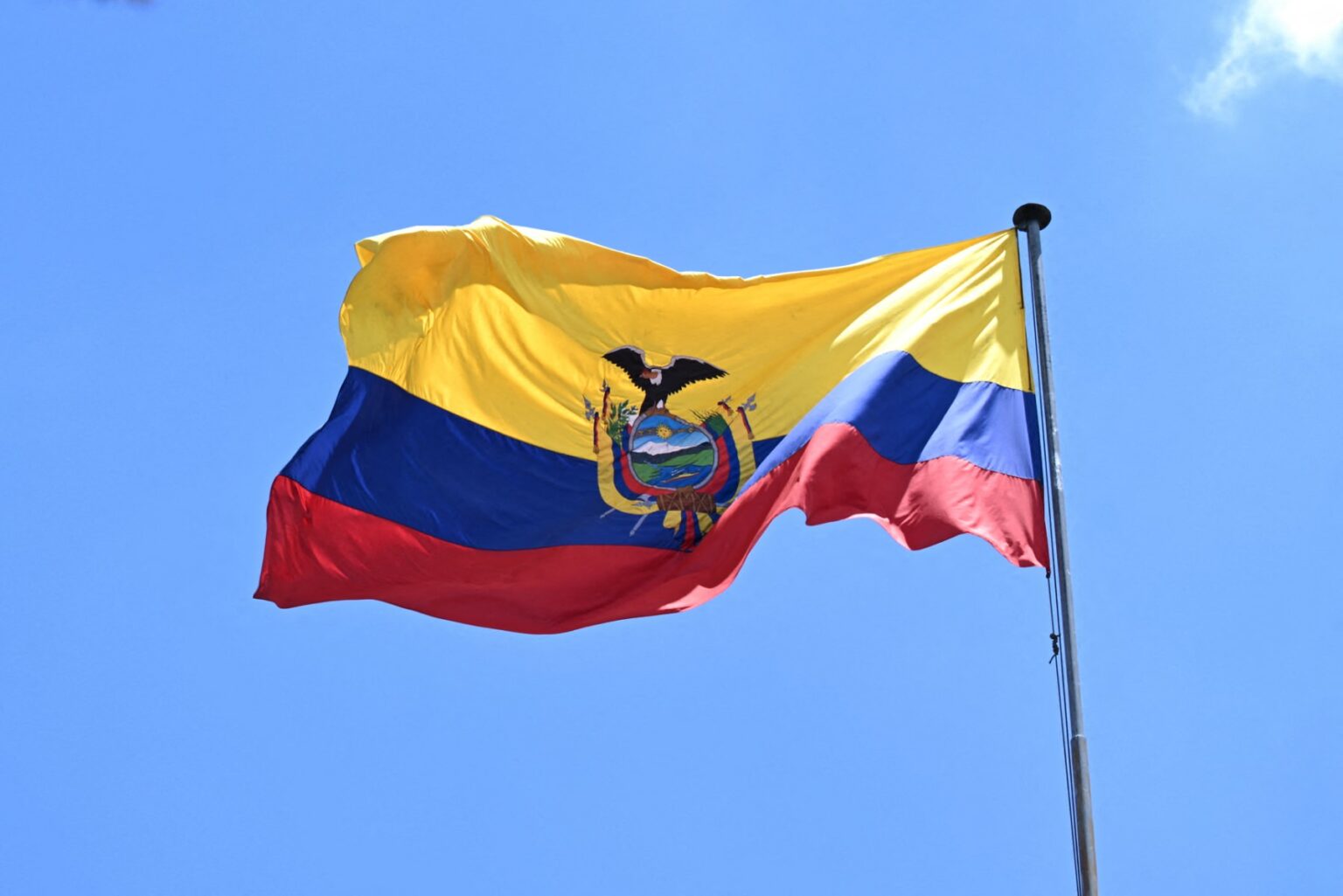International
The president of El Salvador, Nayib Bukele, assures that he does not care if he is called a dictator

The president of El Salvador, Nayib Bukele, assured on Sunday night, in his speech for the first year of his second consecutive term, that “he does not care that they call him dictator” and that he prefers that “to see how they kill Salvadorans.”
Personally, he has called me dictator in all the media that they have wanted and been able to. From Salvadoran pamphlets, to international pamphlets, the most prestigious (unspecified),” Bukele said during a solemn session of the Legislative Assembly held at the National Theater in San Salvador.
“You know what? I don’t care if they call me a dictator,” he said to deputies of Congress, representatives of the diplomatic corps in El Salvador and various institutions, and assured that “I mean that they call me dictator to see how they kill Salvadorans in the streets.”
And he continued: “I prefer these moments when I grab my cell phone and see: dictator, dictator, dictator… in the news and not see murder, murder, murder…)”.
“I prefer to be called a dictator but that Salvadorans can finally live in peace. Let them stay discussing their semantics and we will continue to focus on seeking results and contrary to the lies that they spread day and night, we have more results than any other government in our entire history,” he added.
The President of El Salvador, Nayib Bukele, said on Sunday night, in his speech for the first year of his second consecutive term, that democracy, transparency, human rights and the rule of law “are terms” that are actually used to keep people submissive.
“Democracy, institutionality, transparency, human rights, the rule of law, sound good, they are great ideals in reality, but they are terms that are actually only used to keep us submissive,” Bukele said during a solemn session of the Legislative Assembly held at the National Theater in San Salvador.
“Sadly we are witnessing how our sister countries still believe in these international organizations, they still believe in these treaties that are supposedly to help us with our human rights and some politicians in the region (Latin America) unfortunately lend themselves to this game,” said the president.
“What they, the defenders of democracy and the rule of law, really want is that we are unable to punish the murderers in the name of a supposed ideal of human rights that is no more than the rights of criminals,” the president told deputies of Congress, representatives of the diplomatic corps in El Salvador and various institutions.
The first year of Bukele’s second consecutive term, identified as unconstitutional, is marked by alerts for “an authoritarian escalation”, the detention of human rights activists and the imprisonment of hundreds of Venezuelans, expelled from the United States and who do not face criminal proceedings in El Salvador.
In addition, Bukele defended the approval of a Foreign Agents Act that imposes a 30% tax on international donations to non-governmental organizations, compared to similar legislation used by countries such as Nicaragua to close organizations.
“A few days ago this Legislative Assembly approved the Foreign Agents Law: it is a law to protect international cooperation,” Bukele said in his first-year speech of his second consecutive mandate, prohibited by the Constitution.
The president pointed out, during a plenary session of the Legislative Assembly at the National Theater in San Salvador, that this law is “to ensure that those funds that come from abroad and that claim to be for social projects are really for that to help people.”
“Most developed countries prohibit foreign interference. We allow foreign interference. We only ask them to pay taxes just like everyone else,” Bukele pointed out to deputies of Congress, representatives of the diplomatic corps in El Salvador and various institutions.
International
Colombia to Send High-Level Delegation to Ecuador to Ease Trade Tensions

Colombia’s Ministry of Foreign Affairs confirmed on Friday that, at the instruction of President Gustavo Petro, a high-level delegation will travel to Ecuador in an effort to normalize bilateral relations, which have deteriorated following the imposition of reciprocal tariffs.
“In line with Colombia’s policy of good neighborliness and the spirit of cooperation and integration that guides its foreign policy,” the Foreign Ministry said in a statement, adding that the delegation will be led by Foreign Minister Rosa Villavicencio and Defense Minister Pedro Sánchez.
“Following instructions from the Presidency of the Republic, and as has been publicly reiterated, the Colombian delegation expects to reaffirm Colombia’s offer of support to the Republic of Ecuador to strengthen control over phenomena stemming from transnational organized crime,” the statement said.
The Foreign Ministry noted that the delegation will attend the meeting with a full willingness to engage in dialogue and to seek concrete solutions to the unilateral measures that have affected the longstanding relationship between the two neighboring countries.
Trade tensions between Ecuador and Colombia escalated on January 21, when Ecuadorian President Daniel Noboaimposed a 30% tariff on Colombian products, citing a lack of cooperation in anti-drug efforts. Colombia responded with similar measures and the suspension of energy exports, while Ecuador increased transportation costs for Colombian crude oil.
Business associations in both countries have warned that the dispute is harming both economies and have called on the governments to resolve their differences through dialogue.
International
Super Bowl Halftime Show Puts Bad Bunny—and Immigration Politics—Back in the Spotlight

The long-standing argument that sports and politics should not mix may be put to the test on Sunday during the Super Bowl halftime show, which will be headlined by Puerto Rican superstar Bad Bunny, a choice that has sparked backlash from segments of the U.S. right wing.
Just one week after his headline-making appearance at the Grammy Awards—where he sharply criticized the United States’ anti-immigration policies—Bad Bunny will once again take center stage on the global spotlight with his performance at the NFL final in Santa Clara, California.
Beyond the expectations surrounding the show itself, speculation has grown over whether the artist could again use the platform to protest policies associated with the administration of former President Donald Trump, in front of an audience expected to exceed 120 million viewers in the United States alone.
In fact, one of the most popular Super Bowl prop bets this year revolves around whether the Puerto Rican singer will deliver a direct message against ICE (U.S. Immigration and Customs Enforcement), similar to the one he delivered at the Grammys last Sunday.
While few expect Bad Bunny to repeat such a pointed statement, the mere speculation highlights the delicate balance the NFL must manage during the most-watched broadcast of the year.
The world’s most powerful sports league has drawn criticism from the MAGA movement since announcing in September that Bad Bunny would headline a halftime show largely performed in Spanish.
Trump himself declined to attend the matchup between the New England Patriots and the Seattle Seahawks, despite having made history last year as the first sitting U.S. president to attend a Super Bowl. He described the musical lineup—which also includes outspoken critics such as Green Day—as “a terrible choice” that would “sow hatred.” In response, his supporters have organized an alternative event dubbed the “All-American Halftime Show,” featuring like-minded artists such as Kid Rock.
International
Venezuela Debates Broad Amnesty Law Covering 27 Years of Chavismo

Venezuela’s Parliament began debating on Thursday a sweeping amnesty bill that would cover the 27 years of Chavismo in power, while explicitly excluding serious human rights violations and crimes against humanity.
The proposed legislation, titled the “Amnesty Law for Democratic Coexistence,” was introduced by interim President Delcy Rodríguez, who assumed power following the capture of Nicolás Maduro during a U.S. military operation.
The legislative session was convened for Thursday afternoon, with lawmakers holding an initial discussion focused on the general principles of the bill. This phase precedes a consultation process with civil society, after which the proposal will move to a final debate examining each article individually.
According to a draft of the bill obtained by AFP, the amnesty would apply to individuals accused of crimes such as “treason,” “terrorism,” and “incitement to hatred,” charges that were frequently brought against political prisoners over the past decades. The scope also includes offenses ranging from acts of rebellion to punishments imposed for social media posts or messages sent through private messaging services.
The bill’s explanatory text emphasizes reconciliation, stating that it seeks to move away from “vengeance, retaliation, and hatred” in favor of “opening a path toward reconciliation.”
However, the proposal explicitly excludes from its benefits crimes such as “serious human rights violations, crimes against humanity, war crimes, intentional homicide, corruption, and drug trafficking.”
These exclusions, the text notes, are based on strict compliance with the Venezuelan Constitution, which already prohibits granting amnesties or pardons for such offenses.
-

 International3 days ago
International3 days agoEpstein Denies Being ‘the Devil’ in Newly Released Video Interview
-

 International3 days ago
International3 days agoSpain Seeks to Ban Social Media Access for Children Under 16
-

 International3 days ago
International3 days agoMexico to Send Humanitarian Aid to Cuba Amid U.S. Threats Over Oil Shipments
-

 International2 days ago
International2 days agoDelcy Rodríguez Takes Control of Chavismo as Venezuela Enters a U.S.-Supervised Transition
-

 International3 days ago
International3 days agoPetro Resumes Extraditions, Sends Top Criminal to U.S. Before White House Talks
-

 International3 days ago
International3 days agoMexico Arrests Suspect in Shooting of Sinaloa Lawmakers
-

 International3 days ago
International3 days agoHypothermia Linked to Most Deaths During New York’s Recent Cold Spell
-

 International2 days ago
International2 days agoHRW Warns Trump’s Influence Has Weakened Human Rights in Latin America
-

 Central America23 hours ago
Central America23 hours agoPanama Will Not Be Threatened, President Says Amid Rising Tensions With China
-

 International23 hours ago
International23 hours agoDíaz-Canel Calls for Talks With Washington Without Pressure as U.S. Tightens Oil Sanctions
-

 Central America5 days ago
Central America5 days agoCosta Rica Goes to the Polls as Voters Choose Continuity or Change
-

 International23 hours ago
International23 hours agoVenezuela Debates Broad Amnesty Law Covering 27 Years of Chavismo
-

 Central America3 days ago
Central America3 days agoLaura Fernández Says She Will ‘Never’ Allow Authoritarianism in Costa Rica
-

 Central America23 hours ago
Central America23 hours agoBukele’s Approval Rating Climbs to 91.9% in El Salvador, Survey Shows
-

 International3 days ago
International3 days agoNFL Investigating Emails Linking Giants Executive to Jeffrey Epstein
-

 International34 minutes ago
International34 minutes agoColombia to Send High-Level Delegation to Ecuador to Ease Trade Tensions
-

 International38 minutes ago
International38 minutes agoSuper Bowl Halftime Show Puts Bad Bunny—and Immigration Politics—Back in the Spotlight


























